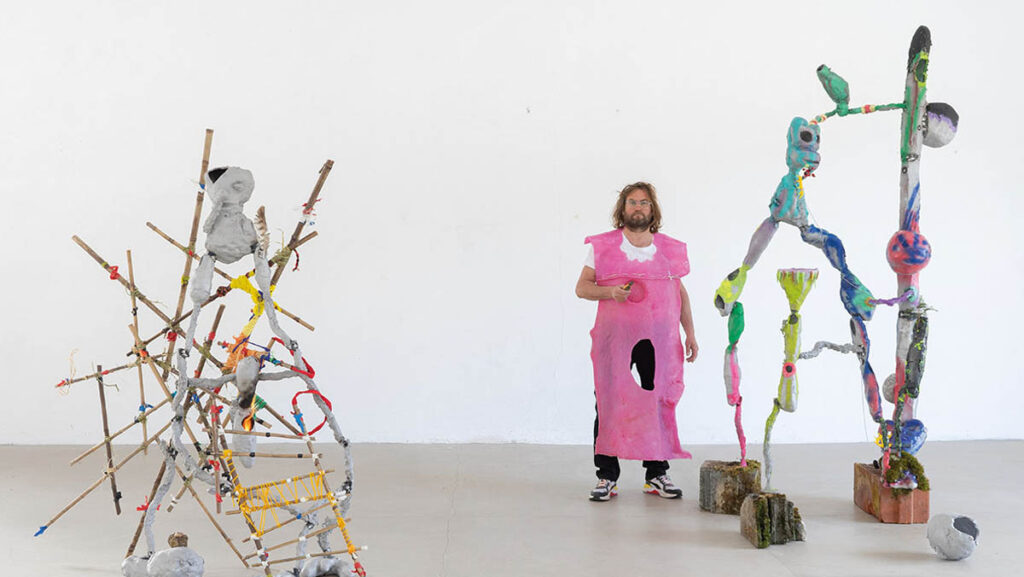
You presented your master’s thesis, „Hello, Father?“ at AAA Winter 25—and as you shared more and more about it, it became clear how personal this work is for you. What inspired you to start this series, and how did you feel when everything began?
I spent the last decade living away from my hometown—bouncing from Vienna to Paris, then Rio de Janeiro. It was just under two years ago when I felt it was time to head back to Budapest. That’s when I decided to reach out to my father. We’d barely spoken in the past 15 years. He lives with his wife in this tiny village by the river, about a 40-minute drive from the city. At first, I started casually documenting my visits—I’d bring my camera, partly to have something to hold, partly as an excuse to be there. It gave me a reason to show up, something to break the awkward silence. I mean, we were practically strangers. Spending that long apart, you lose the rhythm of just… being around each other. Taking photos of the dogs, the landscape, or him became this quiet comfort. I tend to hide my anxiety by keeping busy, and there was something about having a task that made the whole thing easier—for both of us. It was like, “Okay, we’ve got a reason to be here together.”
When I started shooting him, I didn’t fully clock the layers at play. Photography’s got its power dynamics—it’s built on trust. I assumed that trust was automatic because, well, he’s my dad. But it’s more complicated. There was this mix of me working through old resentment and him grappling with guilt. Over time, that shifted into something more genuine—mutual trust, but not without its complexities.
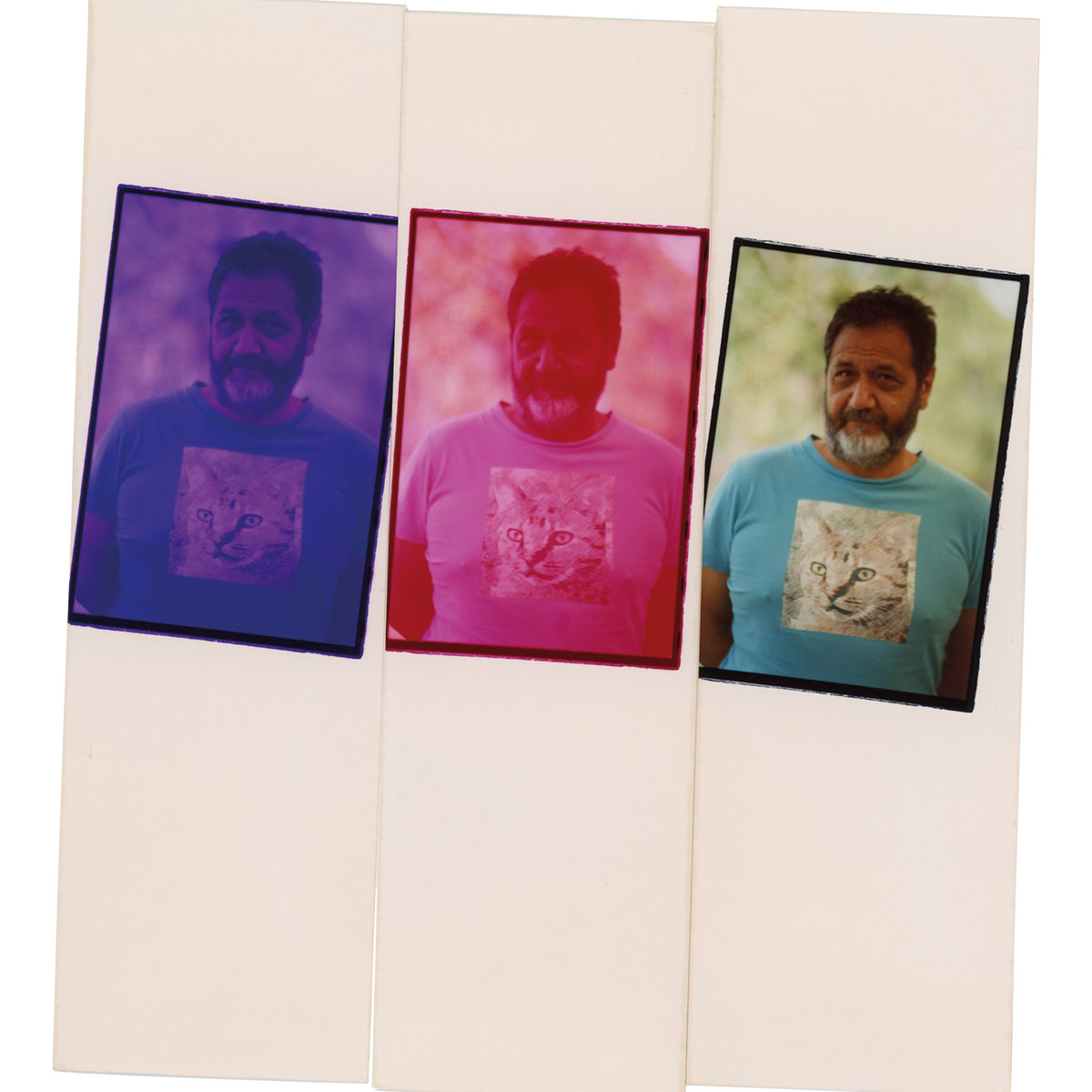
How has your relationship with your father evolved through this photographic process?
Seeing my father as an adult is different. We barely spoke for 15 years, so reconnecting came with a mix of feelings. At first, this project was driven by complicated dynamics—guilt, resentment, and a need to process things. That’s shifted. Now it’s more about observing him without forcing meaning—just paying attention to who he is. He’s a man approaching 60, becoming more aware of his limitations as he ages. I notice those changes—the slowing down, the shift in how he carries himself. I see him navigating his Roma identity, something that’s present but not always openly discussed. And there’s the teacher side of him—the person who, in another context, is seen as an authority figure, respected by his students. It’s interesting to see how these roles overlap or contradict each other. What started as me bringing a camera to fill the silence has become a way to look at our relationship without trying to fix or label it. We had to push through a lot of tension—anger, frustration, mistrust, annoyance—but acknowledging that was part of the process. Only by facing these negative emotions were we able to begin building empathy and compassion for each other. It’s about the challenge of seeing someone clearly, without any preconceived notions. Just as personal trauma can’t be resolved in one therapy session, our journey also took time. What started as my form of revenge eventually turned into a path of healing.

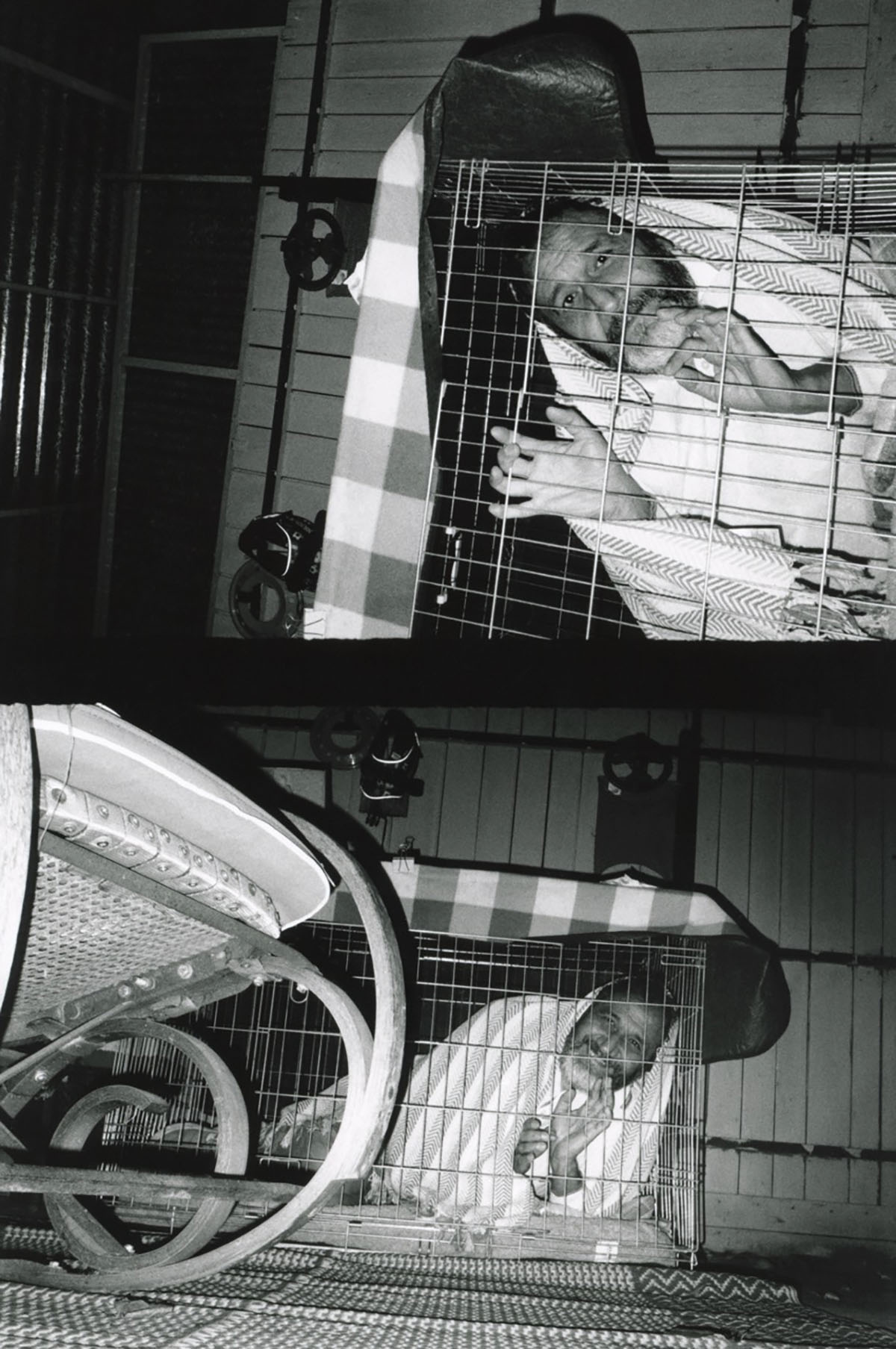
How has working on this project affected your understanding of your identity?
Before this project, I think I was living in a kind of fantasy world when it came to my father. Since we were so disconnected for so long, he could be anyone in my mind. Absence is a curious thing—it’s like an empty space that you naturally fill with whatever is easiest or most comforting. So, I projected a lot onto that void, imagining who he could be or who I needed him to be. But now, as I’m rediscovering him and our relationship, the image of him—and what it means to be his daughter—is way more nuanced and complex. It’s not the idealized version I had before. It’s real, messy, and filled with contradictions. The distance I once felt has shifted into something that’s much more grounded in reality. I see him for who he is, not just who I imagined him to be. And in turn, I’m seeing myself differently too. It’s a whole new dynamic, a more layered understanding of both of us.


Have your father’s reactions to the photographs changed over time?
He was supportive from the start, though I think he was a bit surprised at first and didn’t fully grasp what I was doing. Honestly, he was probably just glad I was taking the initiative to reconnect. But after about a year, when I kept showing up with the same approach, something shifted. He began to take it seriously—almost like it became a job for both of us. That dynamic helped ease the tension. We were occupied—me as the photographer, him as the subject—which left less space to dwell on the emotional weight of the situation. Being busy gave us a way to navigate the process without overthinking what it meant. It became more about the act of doing rather than constantly analyzing what was happening between us. I put together a book from the project for my diploma, and he came to Vienna for the presentation. I could tell he was proud, but we didn’t talk about it—feelings aren’t a big topic between us. He texted me the next morning, though. Just sent me a quick message on WhatsApp: he said he liked the book and thought I should publish it. Simple, but… yeah, it landed.


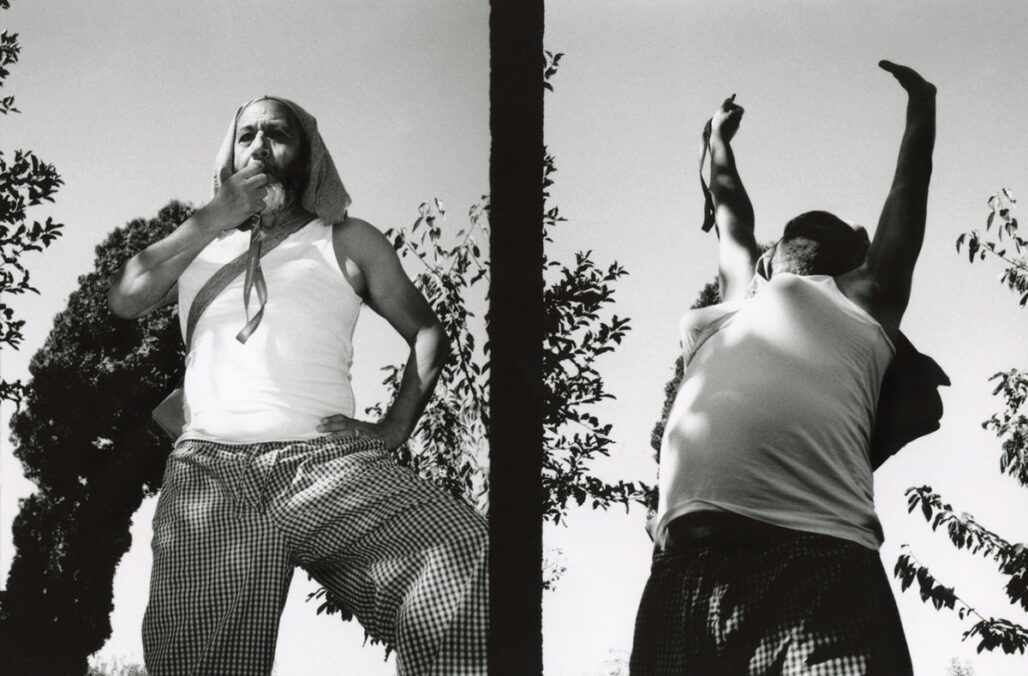
Do you view this project as a form of “reconciliation“?
No, not really. That was never the goal. I’m just a curious person by nature. I wanted to understand this person who is technically my father but, at the time, was pretty much a stranger to me. The project started more as research—almost like a documentary—rather than as some emotional journey. Of course, it naturally shifted into a form of reconciliation along the way. You could call it that. Getting closer to him wasn’t the sole purpose. I’m more interested in figuring out who he is, independent of how our relationship turns out.
Do you consider this series complete, or do you see it continuing in the future?
It’s definitely an ongoing project. I’ve always been drawn to photo series that unfold over a longer period. There’s something about watching things evolve that interests me. I hope we can keep it going for years—I’m curious to see where it might lead, say, five years from now.
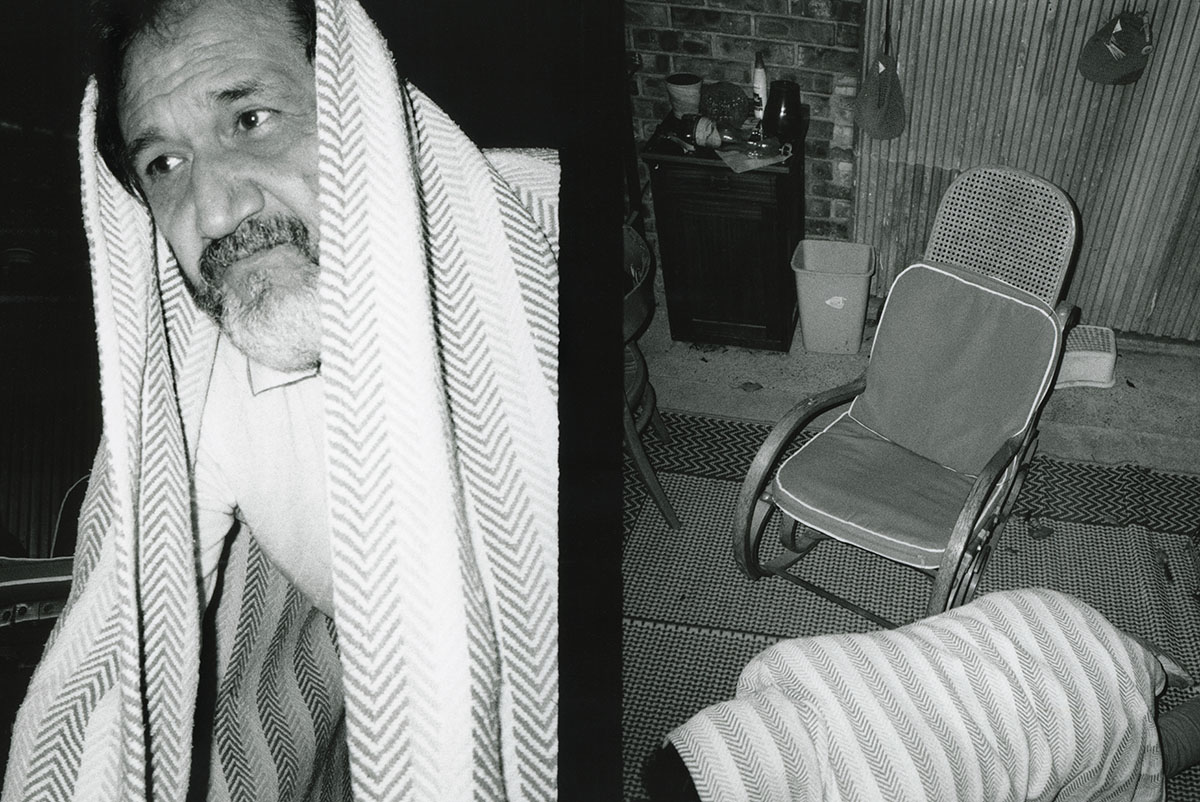
I find this work very courageous. What are you most proud of?
I’m actually pretty proud of how I managed to separate my personal life from my artistic practice. There’s no way I could’ve created this series—let alone shot it—without flipping that emotional switch. When I was photographing, I was thinking like a professional. I had a job to do, and I focused on that. Whether it was comfortable or not was a whole other story. It wasn’t easy. I had to swallow my pride and navigate feelings of discomfort or anxiety. If I hadn’t been able to differentiate between Dora the artist and Dora the daughter, it would’ve been messy—too conflicting. In a way, I think being an artist gave me the perfect excuse to reconnect. Not everyone gets that kind of opportunity. The camera became this tool—to keep the focus on the work rather than getting lost in old wounds. In the end, the purpose felt bigger than the discomfort.

What do you hope to explore in your future artistic work?
I’m a storyteller, always have been. Human stories just hit me in a way nothing else does. I’ve got a new series I’m working on—it’s about angels. It’s still in the early stages, but I’m looking into how people connect to symbols and what that says about us. I’m also heading back to Rio soon. Connecting with people there is a whole different experience—it’s raw, it’s open, it’s not like anything here. I’m working on a project with a friend about the Romani community in Brazil. The way people see Romani folks there is super different from Eastern Europe—it’s almost got this mystical, spiritual vibe to it. We’re digging into those contrasts, seeing what we can learn. On the exhibition side, I’ve got some cool stuff coming up. I’m doing a solo show of „Hello, Father?“ at Bura Gallery in Budapest this September, and I’ll also be showing some work at OFF Biennale in May.
Dora Denerak Galyas – www.doradenerak.com, www.instagram.com/youngdenerak/




